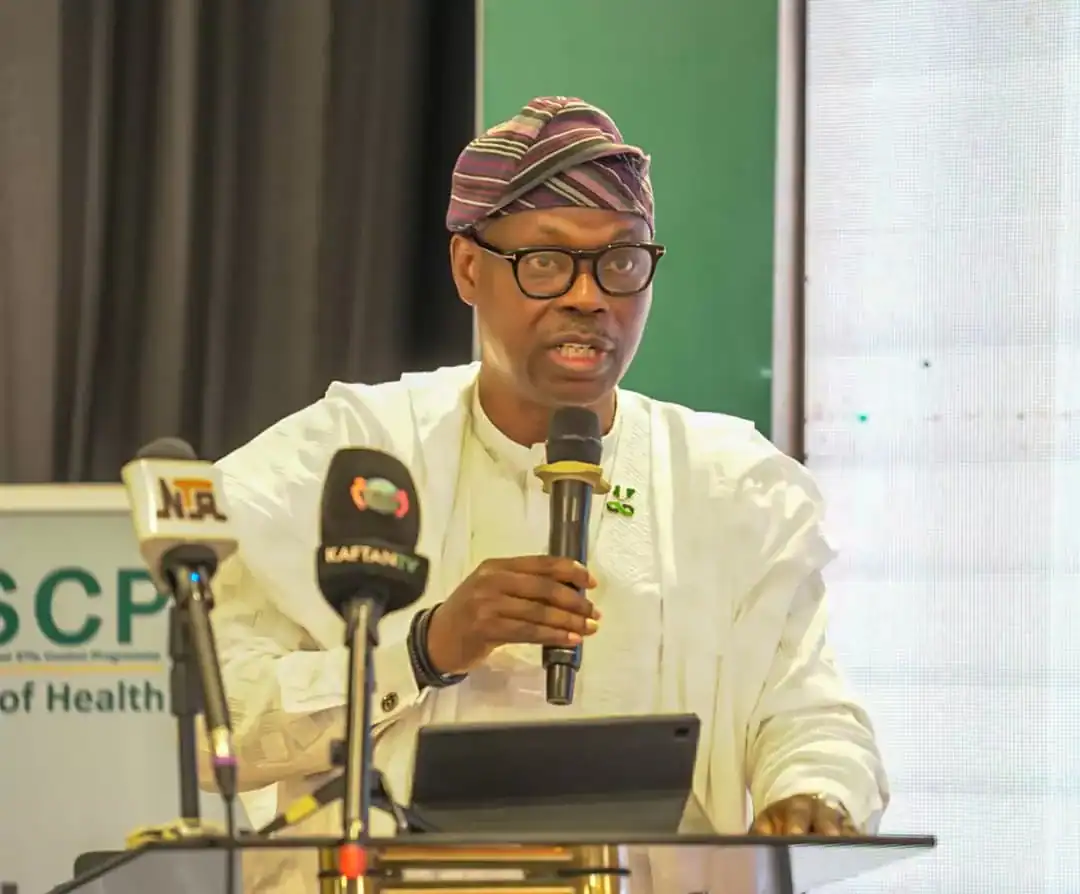505
By Tracy Moses
The Minister of State for Health and Social Welfare, Iziaq Salako, has disclosed that Nigeria is grappling with a severe shortage of medical personnel, with one doctor currently attending to about 3,500 patients across the country.
Salako made the revelation during a press briefing on Monday in Abuja, where he noted that a global scarcity of healthcare professionals has intensified cross-border migration as countries compete for limited medical talent.
The briefing comes against the backdrop of the nationwide strike by the Nigerian Association of Resident Doctors (NARD), which began on Saturday over issues related to welfare, poor working conditions, and unmet government commitments.
Resident doctors have repeatedly decried manpower shortages, unpaid entitlements, and the absence of a clear retention strategy, all of which have worsened Nigeria’s doctor-to-patient ratio and strained the country’s healthcare system.
“There is a shortage of health workers globally, and Nigeria is not exempt. At the moment, we have one doctor to about 3,500 patients. This clearly falls short of the World Health Organization’s recommendation,” Salako said.
He explained that even when the government seeks to recruit more health workers, the pool of available professionals is often too small to meet demand, largely due to migration pressures.
“This global shortage is driving movement across borders. It’s just like economics, when there’s scarcity, demand rises and people move to where opportunities exist,” he added.
Salako described the crisis as part of a wider global challenge, further compounded by Nigeria’s economic realities. He, however, assured that the Federal Government is stepping up efforts to strengthen local capacity and train more health professionals.
“It’s a worldwide problem, but for us, economic challenges are making it worse. Still, we are working hard to address it,” he stated.
The minister revealed that the government is investing in expanding medical training institutions to increase the production of health workers, though he admitted that the results would not be immediate.
“Of course, it will take time for new intakes to graduate and fill the gap. Some countries have implemented policies that treat health workers as national assets, retaining them locally or deploying them strategically abroad. Nigeria is moving in that direction,” Salako explained.
He also addressed concerns over the employment of locum (temporary) doctors in federal hospitals rather than permanent staff, clarifying that hospital chief executives have been authorized to hire locum doctors pending formal recruitment.
“We are aware that many doctors are leaving, so we’ve empowered hospital managements to engage locum staff to fill critical gaps temporarily,” he said.
Salako further explained that the recruitment of permanent staff involves a lengthy approval process that includes the Office of the Head of the Civil Service of the Federation and several government agencies.
“Permanent recruitment takes time because it involves multiple levels, applications, screenings, and integration into the IPPIS system. It’s not a process that can be done every day,” he added.
According to him, the ministry has now adopted a two-track employment approach, conducting annual recruitments through government waivers for permanent staff, while allowing locum engagements between cycles.
The minister said efforts are underway to introduce a standardized protocol to guide hospital administrators on the terms and duration of locum appointments.
“We are developing a universal framework for hiring locums, detailing contract terms, tenure, and ensuring that those who serve temporarily are given priority when permanent positions open up,” Salako said.



